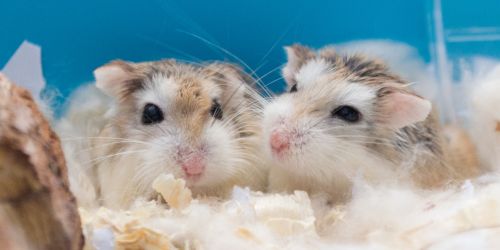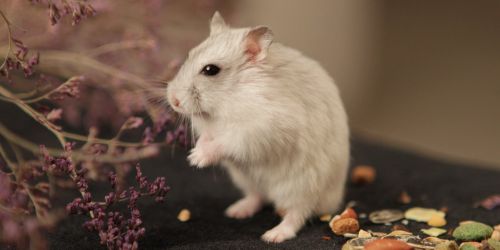Some of the links on our website are affiliate. By making a purchace via our links, you help us create new content and support animal shelters and funds
Syrian hamster lifespan

Syrian hamsters (also known as Golden hamsters) are the largest and probably the most popular pet hamster breed. Despite having not the longest lifespan, they are typically easy to tame, friendly, and love attention.
Syrian hamsters are a perfect choice for inexperienced pet owners. All they need from owners to live a long happy life is gentle handling and proper care.
So let’s see how long your Syrian hamster can live and what you can do to make his life better!
Syrian hamster lifespan
In the wild, Syrian hamsters live for 1-2 years, mainly due to natural threats like different predators. In captivity, their lifespan increases to 2-3 years (which is pretty much the same as the average hamster's lifespan).
While this may seem like not much, you should know that hamsters develop very quickly during their life cycle. And if you calculate hamster age in human years, you’ll have an even better understanding.
Longest living Syrian hamster
According to the Guiness World Records, the oldest hamster ever was 4 and a half years old. It doesn’t mention, though, if it was a Syrian hamster or not.
Some Syrian hamster owners claim that their hamsters lived till the age of 4 or even 5 years, which is a very long lifespan for any hamster breed.
However, it’s highly unlikely for any hamster to live for 7, 8, or 10 years.
What affects the Syrian hamster’s lifespan?
There are a few factors that can affect a Syrian hamster's lifespan, including:
- genetics,
- diet,
- environmental factors,
- and general care.
How to help your Syrian hamster live longer?
As a responsible and loving pet owner, you want you Syrian hamster to be with you for as long as possible. So it's essential to provide your hamster with a proper living environment and care to ensure a long and healthy life.
Here are some tips on how to help your Syrian hamster live longer:
Housing
Syrian hamsters, as they mature, become more territorial and should be housed alone. Provide them with a large cage with a plastic or glass base and small bars to prevent escapes. A standard glass aquarium is also a good option.
Choose wooden bedding carefully (avoid cedar and pine). Opt for paper or aspen shavings instead.
Clean the cage once a week to maintain proper hygiene.
Entertainment
Syrian hamsters are active animals and require a lot of space to play and explore. Provide them with plenty of enrichments such as a hamster wheel with a solid surface (to avoid injuries), tunnels, bridges, and maybe even soil or sand to dig around.
Pro tip: change the enrichments regularly to keep them curious engaged.
Diet
When it comes to commercial food for your Syrian hamster, keep it as natural as possible. A hamster’s diet should also include some fruit twigs, dried herbs, and occasional hardboiled eggs or feeder insects for additional protein.
Avoid feeding Syrian hamsters sugary treats or foods that are high in fat. Provide them with fresh water daily.
Handling
Syrian hamsters are delicate creatures that require gentle handling. Hold them carefully, avoid squeezing them, and do not startle them at any point.
Allow them to get used to your scent and touch slowly.
Health
Keep an eye out for any health issues that may arise, such as wet tail, mites, overgrown teeth, or lumps. Consult with a veterinarian for any health questions or concerns.
Follow these tips, and you can help your Syrian hamster live a long and happy life.





